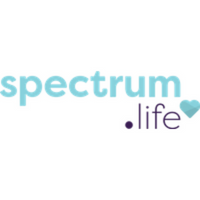Why prevention is better than cure when it comes to mental wellbeing
Poor mental health costs the UK £118m each year and a significant percentage of that cost is avoidable through preventative – versus reactive - wellbeing solutions.
The World Psychiatric Association has identified mental health (on a public scale) as a priority. Meanwhile, prevention is a key issue for many employers, given the current pressure on the NHS and backlogs from the Covid-19 pandemic.
NHS figures for June 2022 show:
• More than 6.7 million people are awaiting treatment.
• 2.54 million people are waiting more than 18 weeks for treatment.
• 355,000 patients are waiting more than a year for treatment (seven times as long as in June 2020)
People are suffering and often drop off the radar or resort to emergency services/hotlines when at their most vulnerable. Proactive, or preventative measures, help stop mental distress from occurring or deteriorating further.
How can employees be supported to make lasting lifestyle changes?
Building employee resilience
Employees with low resilience are up to four times more likely to experience burnout. Encouraging resilience in the workforce helps employees cope with stress (at work or home) in a positive way.
Employers can help help develop resilience skills by providing wellbeing resources ranging from simple solutions (eg realistic goal setting, effective management and employee recognition), or more structured help like Cognitive Behavioural Therapy.
Gamification increases engagement
Some employers find it challenging to increase the use of their wellbeing benefits among their workforce. Research has shown that adding informed gamification into digital platforms and/mental health apps increases motivation to engage with the service.
Gamification enhances an employee’s general reward responsiveness to positive stimuli and supports the process of ‘positive habit making’. An allied market research report shows the global healthcare gamification industry generated $3.3bn in 2021 and is expected to generate $9bn by 2031.
Coaching – a more informal approach
Coaching is a preventative measure for those who need help (eg in sleeping better, building resilience) but don’t need therapy. Coaching is a more informal approach to wellbeing support and can help alleviate stigma around mental health within your workplace and encourage those afraid of seeking help to do so.
Coaching helps people set clear and realistic goals, track and monitor success while being supported through the process. It can provide advice or suggest further resources, giving unique perspectives and direction when someone may be confused or struggling and increase the likelihood of them reaching their goals.
Listening to feedback is key
Almost 60% of employees say they would consider taking a job with a company that offers better wellbeing benefits than their current employer, according to Deloitte.
So, how do you make sure your offerings are ‘better?’
Wellbeing resources and platforms with reporting functions will enable your organisation to establish wellness trends among your workforce to inform future decisions. For example, if reports are showing high numbers of people accessing debt advice services, a proactive wellbeing offering would be to offer budgeting education/advice. Organisations can continually tailor and enhance offerings to suit the needs of their individual workforce. Tailored offerings could help prevent further mental health issues from arising by offering what your organisation actually needs instead of just assuming.
According to research by Forbes, “highly engaged teams are 21% more profitable with a 59% reduction in turnover and 41% reduction in the levels of absenteeism.’’ (9)
Clinically backed wellbeing resources that encourage and reward positive lifestyle behaviour will have a huge positive impact on your organisation.
Your employees deserve to have access to the skills required to take proactive care of themselves and encourage better overall lifestyle habits.
Supplied by REBA Associate Member, Spectrum Life
Supporting 4m+ lives in the corporate, education and insurance sectors with our health & wellbeing solutions.”








